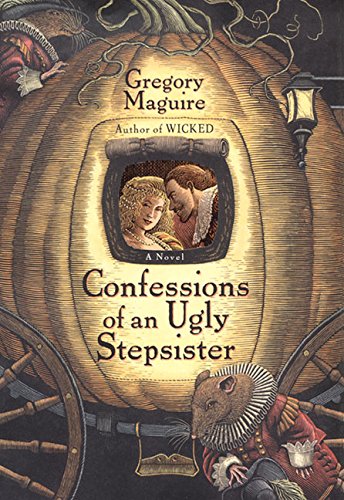Confessions of an Ugly Stepsister / Maguire, Gregory
| List Price: | |
Our Price: $15.00 | |
|
For Bulk orders
| |
|
Used Book Price: | |
| Confessions of an Ugly Stepsister / Maguire, Gregory | |
| Publisher: Regan Books | |
| Availability:In Stock. | |
| Sales Rank: 1012488 | |
|
Similar Books
But this is Cinderella, after all, and tragedy is inevitable. When a wealthy tulip speculator commissions the painter to capture his blindingly lovely daughter, Clara, on canvas, Margarethe jumps at the chance to better their lot. "Give me room to cast my eel spear, and let follow what may," she crows, and the Fisher family abandons the artist for the upper-crust Van den Meers.
When Van den Meer's wife dies during childbirth, the stage is set for Margarethe to take over the household and for Clara to adopt the role of "Cinderling" in order to survive. What follows is a changeling adventure, and of course a ball, a handsome prince, a lost slipper, and what might even be a fairy godmother. In a single magic night, the exquisite and the ugly swirl around in a heated mix:
Everything about this moment hovers, trembles, all their sweet, unreasonable hopes on view before anything has had the chance to go wrong. A stepsister spins on black and white tiles, in glass slippers and a gold gown, and two stepsisters watch with unrelieved admiration. The light pours in, strengthening in its golden hue as the sun sinks and the evening approaches. Clara is as otherworldly as the Donkeywoman, the Girl-Boy. Extreme beauty is an affliction...But beyond these familiar elements, Maguire's second novel becomes something else altogether--a morality play, a psychological study, a feminist manifesto, or perhaps a plain explanation of what it is to be human. Villains turn out to be heroes, and heroes disappoint. The story's narrator wryly observes, "In the lives of children, pumpkins can turn into coaches, mice and rats into human beings. When we grow up, we learn that it's far more common for human beings to turn into rats." --Therese Littleton
Now you can buy Books online in USA,UK, India and more than 100 countries.
*Terms and Conditions apply
Disclaimer: All product data on this page belongs to
 .
.No guarantees are made as to accuracy of prices and information.










